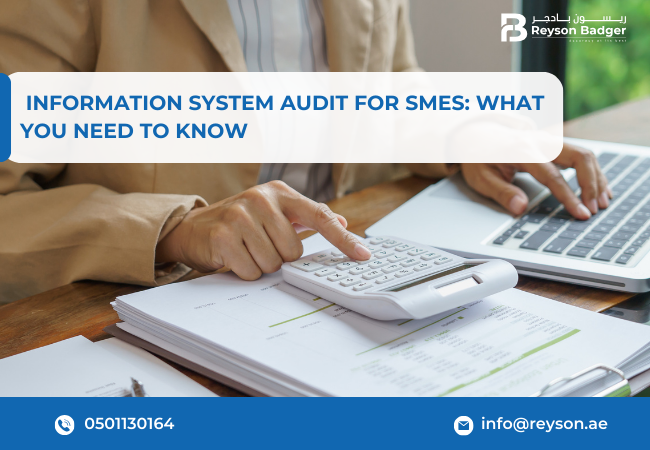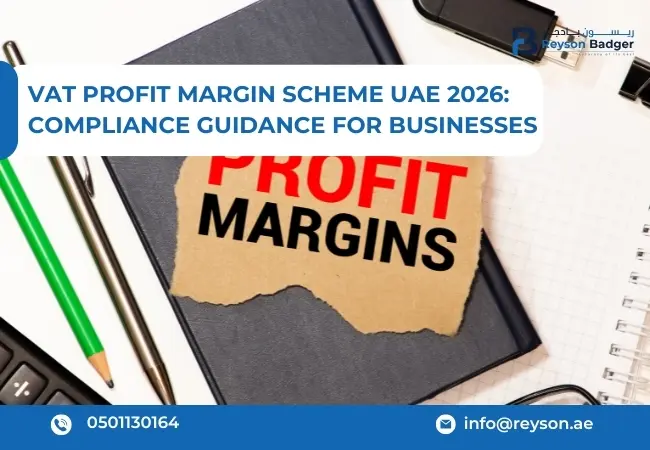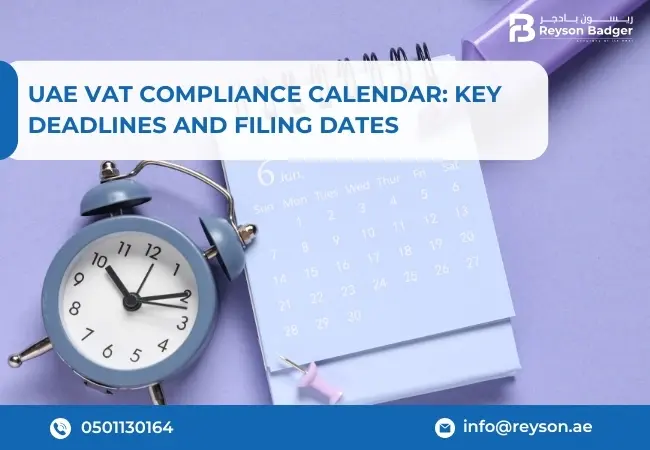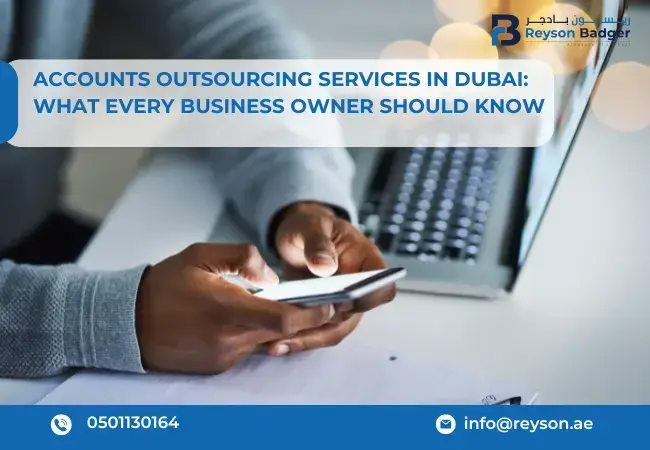
Corporate Tax Registration in Sharjah
The United Arab Emirates has seen major tax reforms in the last few years, shaping the business landscape. UAE Corporate Tax was introduced by Federal Decree-Law No. (47) of 2022 and applies to financial years beginning on or after 1 June 2023; businesses in Sharjah must therefore follow the Federal Tax Authority’s registration and compliance requirements. Companies engaged in all kinds of activities operating in Sharjah need to secure tax registration as it has been a good legality aspect while also keeping away from penalties. Therefore, this guide shall outline the corporate tax in the UAE, stressing the significance of registration and its regulation by FTA in Sharjah.
The corporate tax regime is designed to encourage economic growth with greater transparency and compliance with international tax standards. In this respect, Sharjah is one of the central emirates in transition. In a nutshell, business organizations under registration supervised by the FTA must also observe compliance with the regulations set. Failure to observe registration as well as compliance will attract fines, penalties, and reputational damage.

Who Needs to Register for Corporate Tax?
All Taxable Persons (including Free Zone Persons) are required to register for UAE Corporate Tax; the Federal Tax Authority may also request certain Exempt Persons to register. The corporate tax rates are 0% on the portion of Taxable Income up to AED 375,000 and 9% on the portion above that threshold. Separately, registration is mandatory for all Taxable Persons (including Free Zone Persons) as defined by the Corporate Tax Law and FTA guidance - the AED 375,000 rate threshold does not determine registration obligations. Essentially, any commercial entity conducting economic activities with a profit motive is considered a taxable entity and must register.
Registration Thresholds
The corporate tax is levied at a rate of 0% on profits up to AED 375,000 and 9% on profits exceeding this amount. Therefore, even if a business does not anticipate reaching this threshold, it is still mandated to complete the registration process to comply with UAE regulations.
Documents Required for Corporate Tax Registration in Sharjah
Required documents depend on the applicant type. These include:
Per the Federal Tax Authority: Natural persons should provide a trade licence (if applicable) and passport/Emirates ID; legal persons should provide a trade licence, passport/Emirates ID of the authorized signatory and proof of authorization (for example Power of Attorney or MOA clauses). The FTA registration process also requires business activity information, registered address and ownership details (e.g., owners with 25%+ share). Bank account details may be requested in some cases but are not listed as a core mandatory document on the FTA service page.
Benefits of Registering for Corporate Tax in Sharjah
- Compliance with UAE Tax Laws : Registering for corporate tax ensures compliance with UAE tax laws and regulations.
Avoidance of Penalties and Fines: Timely registration and compliance avoid penalties and fines imposed by the Federal Tax Authority (FTA). - Access to Government Services : Registered businesses can access government services, including tenders, contracts, and licenses.
- Enhanced Business Credibility : Corporate tax registration enhances business credibility and reputation, attracting investors and customers.
- Simplified Financial Transactions : Financial institutions may consider a business’s tax registration status when performing their own due-diligence, but corporate tax registration is a statutory tax compliance requirement - it does not, by itself, guarantee bank account opening or loan approvals (these are decided by banks under their own policies).
- Eligibility for Government Incentives : Some entities may be exempt or eligible for specific tax treatments under the Corporate Tax Law (for example certain Government Entities, approved investment funds, or Qualifying Free Zone Persons meeting defined conditions). Registration alone does not create these entitlements - eligibility depends on meeting the legal conditions set out by the Ministry of Finance and the FTA.
- Improved Financial Management : Corporate tax registration promotes accurate financial reporting and management.
Reduced Risk of Business Disruption : Timely registration and compliance help reduce the risk of administrative penalties and related disruptions; however, registration alone does not guarantee business continuity - ongoing compliance with tax filings and payments (and other applicable laws) is necessary.
Corporate Tax Registration in Sharjah: Step-by-Step Process
To register for corporate tax on the Emara Tax Portal, follow these simple steps:
Step 1 : Log In to the Tax Portal: Log in to the Emara Tax Portal using your credentials.
Step 2 : Add Taxable Person: Add the taxable person/entity to the portal.
Step 3 : Access Corporate Tax Dashboard: Open the Corporate Tax Dashboard.
Step 4 : Initiate Registration: Click "Start" to begin the registration process.
Step 5 : Entity Information: Fill in the Entity Section, providing the required details.
Step 6 : Identification Details: Complete the Identification Section.
Step 7 : Contact Information: Fill in the Contact-Details Section.
Step 8 : Authorized Signatory: Provide Authorized Signatory details.
Step 9 : Review and Declare: Review the application carefully, then declare its accuracy by ticking the checkbox.
Step 10 : Submit Registration: Click "Submit" to complete the registration process.
Tax Obligations After Corporate Tax Registration
After registration of corporate tax in Sharjah, all the enterprises have several tax obligations to be met to ensure compliance with the UAE tax law.
- Tax Return Filing and Payment : Registered firms are expected to file their corporate income tax returns within nine months from the end of the firm's accounting year. For example, if a company closes its books on December 31, it will file the return by September 30 of the following year. In addition to returning, the businesses are required to pay the taxes payable along with the return. Failure to submit within this timeframe attracts drastic penalties and charges of interest.
- Value Added Tax and Excise Tax Compliance : As a constituent of corporate tax, the company should monitor its compliance with value-added tax, or VAT, and excise tax. The businesses have to accurately compute and pay the pertinent VAT on all qualified transactions and see to it that there is proper documentation in claiming input tax cost recovery. Payment of these taxes should be consistent because any mistake would definitely raise an alarm for an audit and sometimes a penalty.
- Tax Returns and Audits : It is the mandate of businesses to make truthful tax returns that will appropriately depict their taxable incomes. The FTA is legally bound to audit the companies to ascertain whether the companies are adhering to the tax laws in place. In such an eventuality, companies should have very informative records regarding all the financial activities since these records will be quite essential while being audited.
Common Mistakes to Avoid for Corporate Tax Registration in Sharjah
- Late Registration : In addition, in case of late registration for corporate tax, the penalties happen to be quite expensive. Companies with an annual turnover of AED 375,000 or more must ensure timely registration to stay out of problems with the FTA.
- Miscalculated tax due to improper documentation : Improper or incomplete submission of documents during registration and filing will result in a miscalculation of tax. Good financial records such as trade licenses, MOA, and financial statements of the company will have to be kept up to date in order not to raise an audit or penalties as a result. Failure to register on time may attract an administrative penalty of AED 10,000; however, the FTA has published waiver conditions under which this penalty may be waived or refunded if the taxpayer meets the specified criteria (for example, submitting the first tax return or annual declaration within seven months of the first tax period end).
- Failure to Pay Tax Dues : Overdue payments will attract interest as well as extra penalties. A firm should make a reminder for the due payment dates and assess its outstanding liabilities regularly.
Why Choose us for Corporate Tax Registration Services in Sharjah?
Sharjah being a government requires private businesses in the Emirate to have a direct concern for registration at the right time, documentation, and payment of tax dues as any other forms of weakness may result in penalties. The most prevalent issues such as delayed registration, under registration or errors in filings, and failure to pay tax may lead to significant financial and operational implications.
To avoid such complications, one should seek help from a professional. Reyson Badger is there to provide corporate tax advice and always keep you in compliance and efficient in your tax process.
Now to determine the reliability and expert advice in terms of tax, Reyson Badger is available for you to contact today so that your business can meet all corporate tax requirements in Sharjah.
Latest Blogs

Accounting System Analysis in Dubai: A Complete Guide for Businesses
Accounting System Analysis Services in Dubai and UAE, businesses gain clarity, control, and confidence in their financial operations turning accounting systems.
READ MORE →
Information System Audit for SMEs: What You Need to Know
Information System audits help UAE SMEs protect data, stay compliant, and strengthen operations for secure, sustainable business growth.
READ MORE →
Mandatory Audit Requirements for UAE Mainland Companies
Mandatory audits are required for UAE mainland companies to maintain compliance, ensure transparency, and support sound financial reporting.
READ MORE →
VAT Profit Margin Scheme UAE 2026: Compliance Guidance for Businesses
The VAT Profit Margin Scheme in UAE 2026 allows eligible businesses to calculate VAT on profit margins instead of full selling prices, ensuring simplified compliance and reduced tax burden.
READ MORE →
Business License Issuance and Renewal Services: What You Need to Know?
A practical guide to business license issuance and renewal in the UAE, including steps, timelines, and key requirements.
READ MORE →
Top Mistakes Tourists Make While Claiming VAT Refund in Saudi Arabia
Tourists often lose their VAT Refund in Saudi Arabia due to small mistakes. Discover common errors and tips to claim your refund successfully.
READ MORE →
UAE VAT Compliance Calendar: Key Deadlines and Filing Dates
A complete UAE VAT compliance calendar highlighting key VAT filing deadlines, return due dates, and important timelines to help businesses avoid penalties.
READ MORE →
VAT Assessment and Compliance Services in UAE: Key Risks, Obligations, and Best Practices
This blog explains VAT assessment and compliance services in the UAE, covering regulatory obligations, common compliance risks, and best practices businesses must follow. Learn how proper VAT reviews, accurate filings, and transaction assessments help avoid penalties and ensure alignment with Federal Tax Authority (FTA) requirements.
READ MORE →
How VAT Refund Schemes in Saudi Arabia Compare with UAE & Other GCC Countries?
Explore how VAT refund schemes in Saudi Arabia differ from the UAE and other GCC countries. This blog compares eligibility, processes, timelines, and compliance requirements, helping businesses and tourists understand key refund opportunities and regional VAT recovery strategies.
READ MORE →
Accounts Outsourcing Services in Dubai: What Every Business Owner Should Know
Accounts Outsourcing Services in Dubai cover essential finance functions through a structured and professional workflow, compliant, and financially organized.
READ MORE → The Federal Tax Authority (FTA) has announced that businesses must complete Corporate Tax registration within 90 days from the Date of Incorporation / MOA.
The Federal Tax Authority (FTA) has announced that businesses must complete Corporate Tax registration within 90 days from the Date of Incorporation / MOA.